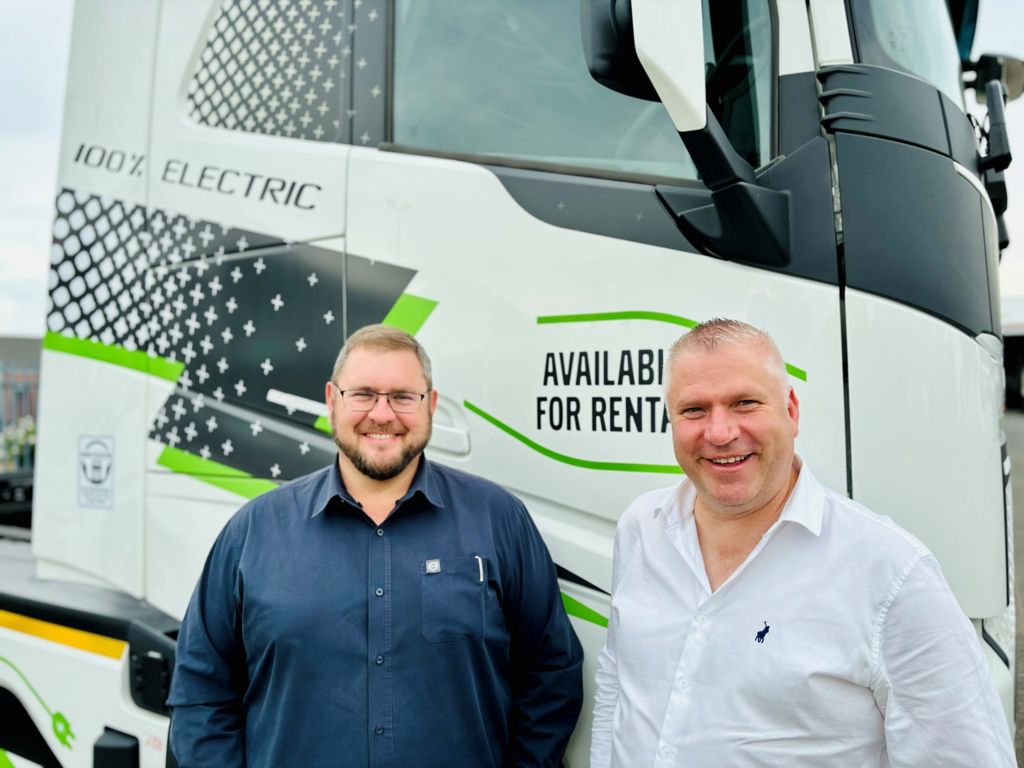Sign up for daily news updates from CleanTechnica on email. Or follow us on Google News!
Last year, Volvo Trucks started delivering heavy electric trucks to its customers in South Africa. In another major boost for the uptake of heavy electric trucks in South Africa, Volvo Trucks South Africa has now launched Equipment-as-a-Service (EaaS) model for electric truck rentals in the country. The local Volvo electric truck range currently consists of FH, FM, and FMX models, configured as 4X2, 6X2, and 6X4 Tractors. The company will also soon have FM 4X2 and 6X2 rigids available.
“We recognise that the high initial capital cost of electric vehicles makes them harder for customers to bring into their business, especially those that have shorter-term contracts with their customers,” said Eric Parry, Senior Manager of Sustainable Solutions at Volvo Trucks South Africa. “The intention is to bring down the “barrier to entry” for those with the environmental ambition to move to cleaner transport solutions. That is why we will also be offering these as rental units to our customers.”
According to Paul Uys, Managing Director of Volvo Financial Services Southern Africa, “There is a clear demand for rental trucks in South Africa, as proven by the success of companies with their diesel vehicle offer. We will be the first in South Africa to offer Electric Trucks in an Equipment-as-a-Service rental solution.”
“The biggest advantage of vehicle rental is there is reduced capital outlay compared to when you purchase a truck. The rental option also allows you more flexibility in using the vehicle for a shorter period, without the commitment attached to a long lease obligation,” explained Uys.
Another exciting aspect of this development is that Volvo Trucks’ EaaS rentals will be available across the whole of South Africa. The company also partnered with an established service provider to offer rental customers the necessary charger infrastructure across South Africa, addressing the need for an easily accessible charging network.
“We run detailed simulations for each route that a fleet would like to operate an electric truck in, and this allows us to determine the optimal location and size of the charger. Our trucks can take up to a 250kW DC Fast charger,” explained Parry. “Then, depending on the client’s needs, we will be able to do a site survey and recommend the optimal charger installation for their location. Our supplier will be able to rent the charger to the client for the period of the vehicle rental.”
Volvo Trucks says that the Volvo Financial Services EaaS rental solution is based on a period of six months or longer, and the amount will include the maintenance and insurance cost of the unit. Each truck will be covered by a full Volvo Trucks Gold Maintenance contract for the life of the vehicle. In general, the trucks will only need to come in once a year for service, irrespective of the mileage they travel. Volvo Trucks says currently it has three dealers in the major metros, with trained technicians and the specialized tools to be able to support the full electric range.
I think this is a great option for fleet operators to explore. A six-month rental contract gives you enough flexibility to explore these kinds of vehicles and get your own real world data and experience with making the first moves to electric. Volvo Trucks also provides special driver training which is aimed at getting the best out of an electrically powered truck. Volvo Trucks adds that the control, couplings, and driving style are identical to a diesel model, so there is not much functional training needed.
“A customised and detailed agreement is entered into with each client, and is dependent on the vehicle and the type of operations in which the truck will be used,” explained Uys. “The rental units will also incorporate Volvo Connect, allowing customers access to a range of fleet management solutions like vehicle tracking.”
Uys said that at this stage, a rent-to-own option is not available, but that customers can finance electric trucks with ultimate ownership then subsequently passing to them. Volvo’s Trucks Electric Trucks are aimed at customer fleets with a strong environmental ambition or a push from their client base.

“These fleets are usually running regional operations. From big blue chip corporates to smaller fleets, we have received interest from a range of companies,” said Parry. “The rental option enables them to test out the product in their operation for a meaningful amount of time, without the initial capital investment.”
In a separate but also interesting development, Zero Carbon Charge is planning roll out 120 solar PV-powered electric truck charging sites on national highways across South Africa. Zero Carbon Charge says this will be the first off-grid, 100% green electric truck charging network in the country.
Zero Carbon Charge says the initial 6 sites are planned for the major N3 freight route between Durban and Johannesburg. This 120-truck charging network will be additional to the 120 electric passenger vehicle off-grid charging sites planned by Zero Carbon Charge. Construction has already started at one of these sites.
Zero Carbon Charge Says this is offering is in response to the growing shift by major truck manufacturers to producing electric truck models, with many truck manufacturers already committed to achieving full electric transition by 2040.
“Every day, 8,756 trucks travel on the N3 between Durban and Johannesburg, using over 658 million litres of fuel at an import cost of R8 billion, emitting 1,781,256,762 kg of CO2 emissions per year. Replacing these fuel powered trucks with electric models will save 670 kg of CO2 emissions per truck per day, significantly reducing our country’s reliance on expensive dirty fossil fuel imports,” says Joubert Roux, co-founder of Zero Carbon Charge.
 Chip in a few dollars a month to help support independent cleantech coverage that helps to accelerate the cleantech revolution!
Chip in a few dollars a month to help support independent cleantech coverage that helps to accelerate the cleantech revolution!
Zero Carbon Charge adds, “The growth in electric trucks will create an increased energy demand: the electricity required to charge the 8 756 trucks using the N3 route daily totalling an additional 2.3 billion kWh/year alone. If one takes into account all 14 national roads, the country will need an additional 8 billion kWh/year of electricity to power the 30 000 electric trucks travelling on these routes daily, placing a major strain on the national grid.”
Zero Carbon Charge feels that is essential to start investing in off-grid infrastructure to power some of these trucks, particularly while traveling on long haul routes. “This is the focus of Zero Carbon Logistics, which will build 120 truck charging stations across all national roads in South Africa. The first six sites on the N3 have started the permitting process, and we hope to be up and running by November 2027,” said Andries Malherbe, co-founder of Zero Carbon Charge.
Zero Carbon Charge says that its charging stations will be completely off-grid, with each facility powered by 35 MWp of solar PV, which means they will be able to continue servicing customers during load-shedding and will not contribute to greenhouse gas emissions. “In light of Eskom’s electricity network being powered primarily by dirty coal for the foreseeable future, a major shift towards electric trucks poses the real risk of increased CO2 emissions. Zero Carbon Charge’s research shows that an electric truck charged by the Eskom network could emit 37.5% more CO2e emissions per kilometre compared to an equivalent diesel powered truck.”
Images courtesy of Volvo Trucks.
Have a tip for CleanTechnica? Want to advertise? Want to suggest a guest for our CleanTech Talk podcast? Contact us here.
Latest CleanTechnica.TV Video
CleanTechnica uses affiliate links. See our policy here.




